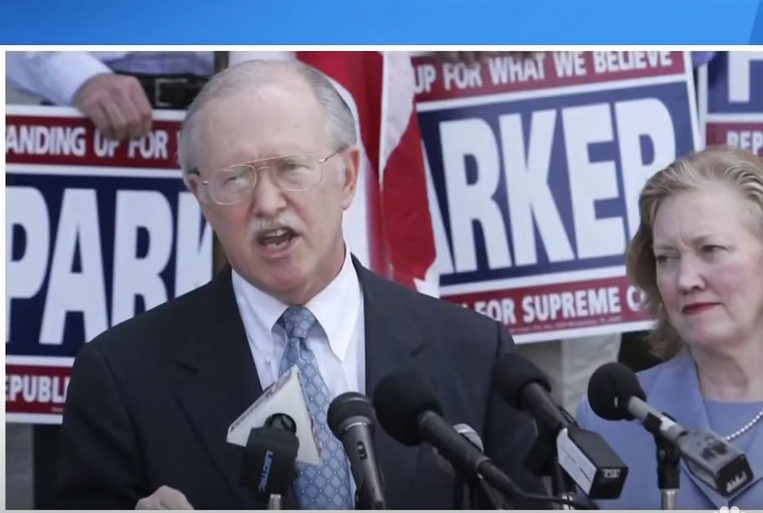In a nation already riven by deep and bitter ideological differences, I.V.F.—in vitro fertilization—has been added to those on which there are irreconcilable differences.
In recent days, the Alabama Supreme Court ruled that frozen embryos should be considered children, raising questions that tangle religion, law, reproductive rights, medicine and politics.
For Christians, in vitro fertilization, like abortion, presents moral problems. Both revolve around the unsolvable question of, “when does life begin?” Does life start at birth, when the fetus becomes a self-sustaining organism, or at conception, when the potential for a human being is established?
In vitro fertilization takes the question a step further than abortion, tracing it back to the process of trying to form an embryo. Unlike abortion, where there is already a fetus, the woman undergoing I.V.F. procedures isn’t even pregnant yet—and may never be. The success rate for the complex, expensive and highly stressful procedure is low. The pregnancy rate for I.V.F. is approximately 29.4% and the live birth rate is only around 22.4%.
Andrew T. Walker, associate professor of Christian ethics and public theology at the Southern Baptist Theological Seminary, called the Alabama decision “a very morally honest opinion”. The ruling, he said, shows the direct line of reasoning between belief that life begins at conception, and opposition to abortion and I.V.F.
The court’s chief justice, Tom Parker, wrote in his decision, “Human life cannot be destroyed without incurring the wrath of God.” His justification, invoking God and religion, puts at grave risk the Constitutional imperative of the separation of Church and State and brings America ever closer to a theocracy. Parker tried to connect the two by stating that “God created government,” a rationalization that few would find coherent.
Among conservative Christians, a segment of the American population that is growing in numbers and becoming more vocal, the belief that life begins at conception has been a driving force behind anti-abortion policies for years. While the Protestant position on IVF is somewhat less stringent than that of Catholics, they are more similar than different. Catholic teaching expressly forbids it; Protestants are not quite as categorical.

The Alabama Supreme Court’s ruling that frozen embryos are people with legal rights, a decision that was based on religion, confounds the explicitly stated foundational principles of a secular state. Why should non-believers and non-Christians abide by laws that are meaningful only to some and not to all citizens of the nation when the Constitution expressly guarantees freedom of–and from–religious oppression?
After the ruling, the University of Alabama at Birmingham health system paused I.V.F. procedures because it was worried about potential criminal prosecutions.
The church’s opposition to I.V.F. goes back a long way, to the world’s first “test tube baby,” born in England in 1978. Written by Cardinal Joseph Ratzinger, who went on to become Pope Benedict XVI, the document addressed a variety of fertility technologies, like artificial insemination, I.V.F. and surrogacy.
Last month, Pope Francis condemned surrogacy as “despicable” and called for a global ban on the practice. An unborn child should not be “turned into an object of trafficking,” he said.
Another prominent fear that has not featured explicitly but is nevertheless embedded in this decision is that of the slippery slope argument. As technology advances, what else will become possible? Kristan Hawkins, president of Students for Life, which opposes IVF, equates it to “a business model built on disposable children and treating children as commodities.”
“I.V.F. is just the very beginning of reproductive technologies,” she said. “We are just woefully unprepared to address the onslaught of issues that are coming.”
The blowback from the shocking decision made by Alabama Chief Justice Parker took even the GOP and MAGA world by surprise. But after days of silence on the topic, former President Donald Trump gave full-throated support for in vitro fertilization treatments.
“Under my leadership, the Republican Party will always support the creation of strong, thriving, healthy American families. We want to make it easier for mothers and fathers to have babies, not harder! That includes supporting the availability of fertility treatments like IVF in every State in America,” Trump wrote on Truth Social.
Taking their cue from the man who has an iron grip on their party, GOP legislators raced to align themselves with Trump’s endorsement of I.V.F.
Justice Parker– perhaps even he was caught off-guard by the violent reaction to his ruling—found it necessary to clarify that he has no intention of prosecuting either families or providers of I.V.F. treatment.
Whether Parker’s backpedaling renders his decision moot or whether it will be taken up by more conservative legislators, will remain to be seen.












